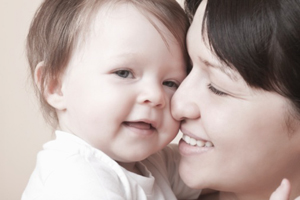MMRV Vaccine and Febrile Seizures
A study showing the risk levels for several health outcomes, including seizures, after measles, mumps, rubella, and varicella (MMRV) combination vaccine in children aged 12 to 23 months has been published in the July 2010 print issue of Pediatrics (published online June 28).

The study, “Measles-Mumps-Rubella-Varicella Combination Vaccine and the Risk of Febrile Seizures” uses computerized information from CDC’s Vaccine Safety Datalink (VSD) Project. VSD consists of managed care organizations which gather vaccination and demographic information, as well as health outcomes of their patients (more than 9.2 million across the U.S.)
Researchers examined VSD data on more than 83,000 children who received their first dose of MMRV vaccine and over 376,000 children who received their first doses of MMR and varicella vaccines given at the same visit from the year 2000 to the year 2008.
The Study’s Main Findings Report:
For MMRV combination vaccine, there was 1 additional febrile seizure for every 2,300 doses given, compared to separate MMR plus varicella vaccines in the 7 to 10 days following vaccination.
Of the children identified as having seizures following the 7 to 10-day vaccination period, about 90% were found to be febrile seizures.
The rate of seizures in this timeframe was 85 per 1000 person-years in the MMRV vaccine group compared to 42 per 1000 in the MMR and varicella vaccine group. This risk was about 2 times higher in children who received the combination shot (MMRV) versus the single shots (MMR and varicella).
The Study’s Conclusions Report:
CDC recommends providers who choose to use the combination MMRV vaccine be aware of and clearly communicate to parents and caregivers the increased risk of fever and seizure within the 7 to 10 days following vaccination.
Parents should be educated on the risk of seizure following the combination MMRV vaccine and know their options. Most children recover quickly from febrile seizures and have no lasting effects.